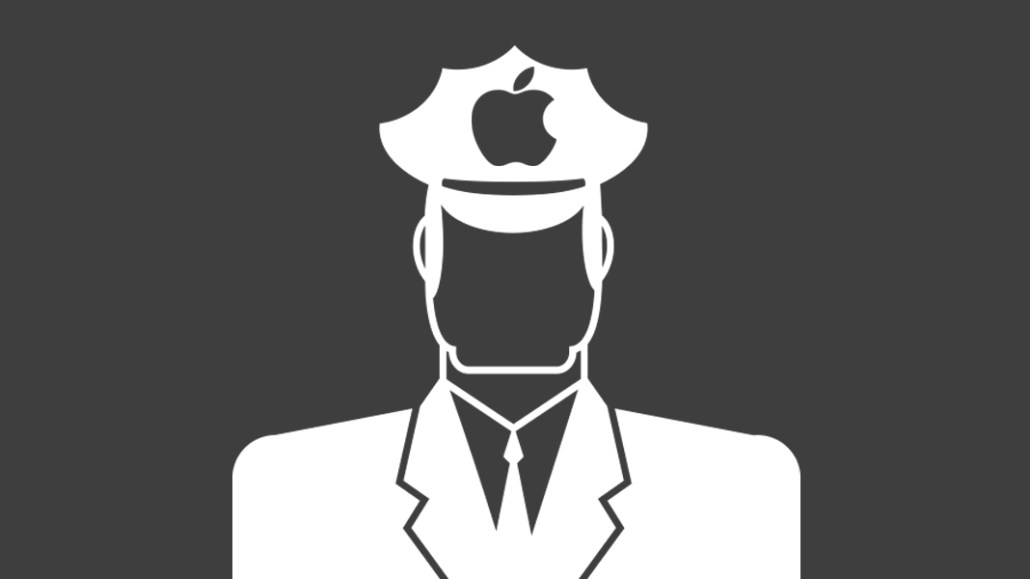
Late-night TV staple, John Oliver recently skewered companies such as Acxiom, Epsilon, LiveRamp and Transunion in a skit where he labeled them middlemen in a “sprawling, unregulated ecosystem which can get very creepy, very fast.”
And with that unflattering description, where vulnerabilities to nefarious players were also aired, delivered to a national TV audience on Sunday night, it is perhaps apt that the International Association of Privacy Professionals hosted its annual flagship conference, where Apple CEO Tim Cook delivered a keynote address, in the subsequent days.
Almost a year after it hamstrung the industry with the implementation of its App Tracking Transparency solution — a move that arguably made Cook one of the most powerful people in the ad industry — he took to the stage to clarify key Apple policy stances.
Apple favors privacy regulation
As arguably the biggest of Big Tech players, this may come across as something of a surprise statement, especially from the CEO of a company that confronted federal authorities over the encryption of its devices.
Although, speaking to IAPP delegates, Cook backed the notion of a U.S. federal privacy law, noting that Apple is also an advocate of GDPR. “To be clear, Apple is in favor of privacy regulation,” he said. “We also continue to call for a strong comprehensive privacy law in the United States.”
Many in the industry view the internet’s major platform providers such as Apple with its control of iOS and Safari ecosystems as the de facto global privacy regulators. And with the biggest names in the sector all calling for a U.S. national privacy law – interestingly, this is something that Last Week Tonight’s Oliver also called for – some believe such laws will be drafted within years.
Competition is great but users still need protection
However, that said, Cook warned that Apple must also be afforded the ability to effectively police its own ecosystem, a topic that has seen his company come under fire in recent years, especially from app developers and their advertising partners.
“We are deeply concerned about regulations that will undermine privacy and security in service of some other aim,” he told IAPP delegates. “Policymakers are taking steps in the name of competition that would force Apple to let apps on the iPhone that circumvent the App Store through a process called sideloading.”
Cook’s warning referenced some of the regulatory pressure brought to bear on Apple over its rigorous demands that companies looking to sell their wares through its App Store must strictly adhere to its stipulations over consented user tracking.
French internet players complained to regulatory authorities there over just this practice, not to mention legal challenges mounted by Epic Games over payment terms and conditions within the virtual outlet, but Cook was resolute in his defense.
He maintained that “sideloading” — a process whereby software such as an app could be installed on an iPhone via channels other than the App Store — is innate with risk with a statement that could also be considered as a swipe at Google’s preference for a more open architecture.
“That means that data-hungry companies would be able to avoid our privacy rules and once again track our users against their will. It would also potentially give bad actors away around the comprehensive security protections we put in place, putting them in direct contact with our users,” said Cook. “And we have already seen the vulnerability that creates on other companies’ devices.
Data protection drives innovation
As mentioned, Big Tech players regularly face criticism from antitrust authorities where key arguments for those engaging in such arguments are consumer harm and the promotion/hindrance of innovation.
Cook used his address to argue that his company’s industry critics — i.e. ad tech companies or “data brokers” to use Oliver’s parlance — simply don’t take user opinion into consideration when devising their targeting and tracking services.
“They don’t believe we should have a real choice in the matter. They don’t believe that they should need our permission to appear so deeply into our personal lives,” he argued. “So we’ve given our users the features they need to have more control over their private information.”
Of course, Apple’s aforementioned critics are often quick to point out that Apple’s stance gives it permission to effectively make decisions on behalf of third-party businesses when it comes to monetizing their audiences on iOS and Safari devices.
Although, in his address, Cook moved to counter such notions, with many Apple advocates often keen to highlight that many companies attempted to undermine its early attempts to encourage much explicitly consented user-tracking with tactics such as fingerprinting. “A world without privacy is less imaginative less empathetic, less innovative, less human,” said Cook. “At Apple that is not the world we want to live in. We believe that privacy is a fundamental human right.”
Observers on the lookout for hints to any future plans to roll back data signals on Apple devices will have been left disappointed. Although with the iPhone maker’s grasp over its iOS and Safari ecosystems closing ever-tighter some in the online media ecosystem will look towards its Worldwide Developers Conference in early June (this is where it typically unveils policies such as ATT) with trepidation.
More in Marketing

WTF are tokens?
When someone sends a prompt or receives a response, the system breaks language into small segments. These fragments are tokens.

AI is changing how retailers select tech partners
The quick rise of artificial intelligence-powered tools has reshaped retailers’ process of selecting technology partners for anything from marketing to supply chain to merchandising.

YouTube’s upmarket TV push still runs on mid-funnel DNA
YouTube is balancing wanting to be premium TV, the short-form powerhouse and a creator economy engine all at once.







